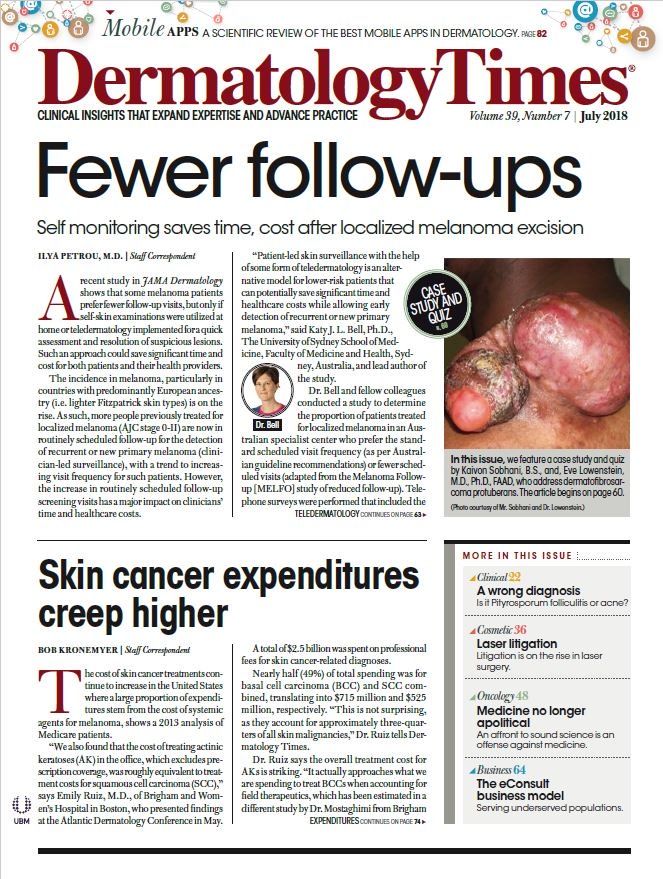- Acne
- Actinic Keratosis
- Aesthetics
- Alopecia
- Atopic Dermatitis
- Buy-and-Bill
- COVID-19
- Case-Based Roundtable
- Chronic Hand Eczema
- Chronic Spontaneous Urticaria
- Drug Watch
- Eczema
- General Dermatology
- Hidradenitis Suppurativa
- Melasma
- NP and PA
- Pediatric Dermatology
- Pigmentary Disorders
- Practice Management
- Precision Medicine and Biologics
- Prurigo Nodularis
- Psoriasis
- Psoriatic Arthritis
- Rare Disease
- Rosacea
- Skin Cancer
- Vitiligo
- Wound Care
Publication
Article
Dermatology Times
The atopic march strides toward eosinophilic esophagitis
Author(s):
Eczema, food allergy, and asthma independently and cumulatively increase the risk for eosinophilic esophagitis (EoE), according to findings presented at the 2018 American Academy of Allergy, Asthma & Immunology and World Allergy Organization Joint Congress in Orlando.
Eczema, food allergy, and asthma independently and cumulatively increase the risk for eosinophilic esophagitis (EoE), according to findings presented at the 2018 American Academy of Allergy, Asthma & Immunology (AAAAI) and World Allergy Organization Joint Congress in Orlando.
The finding suggests that EoE falls into the pattern of atopic march, but much later in the progression. The atopic march describes how patients with early atopic dermatitis (AD) eventually progress to IgE-mediated food allergy, asthma, and allergic rhinitis.
Using a case-control design with propensity score matching, researchers at Children’s Hospital of Philadelphia examined the relationship between EoE and the atopic march in a cohort of 130,457 children who entered the study before age 2.
A total of 139 children developed EoE during the observation period, for a prevalence 0.11%. The peak age of developing EoE was 2.7 years, compared with 0.4 years for the development of AD, 1 year for the development of food allergy, and 4.1 years for the development of allergic rhinitis. Risk factors for EoE were male gender (odds ratio [OR]: 2.7) and white race (OR: 2.4).
Independently, AD increased the risk of EoE by 2.7-fold, food allergy increased this risk by 8.9 times, and allergic rhinitis more than doubled it. The presence of EoE significantly increased the risk of subsequent allergic rhinitis by almost 4-fold.
“The cumulative risk of EoE also went up with each subsequent atopic, or allergic, disease,” said study co-author author Jonathan M. Spergel, MD, PhD, in a prepared statement. With one atopic condition, the risk of subsequent EoE increased by a factor of 4; with 2 conditions, the risk of EoE increased by 6.5 times; with 3 conditions, risk increased by nearly 10-fold, and with 4 conditions, this risk increased by 12 times.
REFERENCE
Hill DA, Grundmeier RW, Ramos M, et al. Eosinophilic esophagitis is a late manifestation of the atopic march. Presented at the 2018 American Academy of Allergy, Asthma & Immunology (AAAAI) and World Allergy Organization Joint Congress; March 2-5, 2018; Orlando, Fla. Abstract 274.

Newsletter
Like what you’re reading? Subscribe to Dermatology Times for weekly updates on therapies, innovations, and real-world practice tips.

























